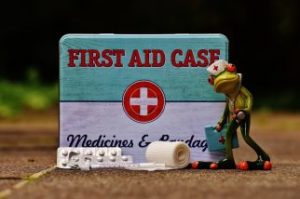1) Make Electronic Copies of Your Travel Documents.
Although you'll be carrying necessary documentation with you when traveling abroad, you need to have copies in case they are lost or destroyed. Create an electronic backup of your passport, insurance card, plane tickets, itinerary, visa's, and hotel and car reservations before you leave home. Email the copies to yourself and keep it in your inbox for easy access.
2)Insurance-Insurance-Insurance
When traveling internationally, it is essential that you buy traveler's medical insurance to protect yourself against accidental injuries. Find out what your private insurance company covers for international travel. There is a good chance that you won't be covered for illness or injury in a foreign country or that your coverage will be insufficient.
In my opinion, the best plans include:
- 24/7 access to medical care
- hospital and doctor of coice
- up to $2 million coverage
- deductible options
- drug coverage
- travel and luggage delay benefits
- repatriation and emergency evacuation
Remember that most people never think they will need travel insurance until they do and don't have it.
3)Enroll in the STEP program.
The STEP program stands for Smart Traveler Enrollment Program. This is a free service that allows US citizens and nationals traveling and living abroad to enroll their trip with the nearest US Embassy or Consulate. Enrolling allows you to:
- receive important information from the embassy about safety conditions in your destination country, helping you to make informed decisions about your travel plans.
- helps the US Embassy contact you in an emergency, whether national disaster, civil unrest, or family emergency.
- helps your family and friends get in touch with you in an emergency.
4)Share your itinerary
Email a copy of your itinerary to members of your family or close friends. Let them know if you'll be unable to check in with them regularly.
5)Keep an emergency number list on you.
Keep on hand details you would need in an emergency. This includes local police numbers, directions to the nearest embassy with contact information, and the emergency number for the country you're in.
6)Current Affairs.
Be up to date on current affairs (cultural and political) in the countries you're visiting. Enrolling in the STEP program will help with that.
7)Scams.
Search popular scams related to the countries you're visiting. Unfortunately, there are many existing scams that travelers fall prey to. No matter where you go, someone may try to cheat you out of your money. Whether it's the broken taxi meter (make sure it's working or negotiate a fee in advance), group photo offer (they steal your phone), fake wifi hub (gives them access to your computer), or the free bracelet they slap on your wrist ( then demand payment and create a scene), you need to be an informed traveler ahead of time. So search “popular traveler scams” and educate yourself.
8)Pre-trip Doctor visit.
See your physician for an exam before you go and refill any medications you are taking. Also, make sure you've had any vaccinations required for the countries you're visiting.
9)Be careful with your bling.
Don't make yourself a target for thieves. Leave the flashy expensive jewelry at home and guard your expensive cameras and phone. Keep your phone in your hand or in your pocket. Don't put it on the table while eating.
10)Choose safety over saving money.
Traveling can be expensive so most of us want to save money on flights, sleeping arrangements, etc. Be aware that the inexpensive hotel room or hostel might not be in the safest part of town. Your budget flight might arrive late at night making it difficult to get transportation.
11)Fly healthier.
Long flights can cause DVT'S (blood clots) which can cause serious health issues. Stand up regularly and walk up/down the aisle. Drink lots of water because airplanes can dehydrate you.
12)Money.
Keep some cash hidden in a different bag if you can and keep a list of your credit card names and numbers with their contact information in case you lose your wallet or purse.




